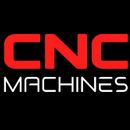CNC Machining for the Medical Industry: Precision in Life-Saving Devices

CNC Machining for the Medical Industry: Precision in Life-Saving Devices
In the realm of medical device manufacturing, precision is not just a requirement—it's a necessity. Computer Numerical Control (CNC) machining has become an indispensable technology in producing components that meet the exacting standards of the medical industry. From surgical instruments to implants, CNC machining ensures that each part is manufactured with the utmost accuracy, reliability, and compliance.
The Imperative of Precision in Medical Devices
Medical devices often operate in critical environments where even the slightest deviation can have significant consequences. CNC machining offers unparalleled precision, achieving tolerances as tight as ±5 microns. This level of accuracy is vital for components like orthopedic implants, catheter tips, and surgical tools, where exact dimensions are crucial for proper function and patient safety.
Regulatory Compliance: Meeting Stringent Standards
The medical industry is heavily regulated to ensure patient safety and product efficacy. CNC machining processes are designed to comply with standards such as:
- ISO 13485: Specifies requirements for a quality management system for medical devices.
- ISO 14971: Focuses on the application of risk management to medical devices.
- FDA's Quality System Regulation (QSR): Outlines current good manufacturing practices (cGMP) for medical devices in the U.S.
Adherence to these standards ensures that CNC-machined medical components are safe, effective, and of high quality.
Applications of CNC Machining in Medical Device Manufacturing
CNC machining is utilized in various aspects of medical device production, including:
- Surgical Instruments: Crafting tools with complex geometries and fine details.
- Orthopedic Implants: Producing components like hip and knee replacements with precise dimensions.
- Dental Devices: Creating crowns, bridges, and orthodontic appliances.
- Prosthetics: Manufacturing customized limb components tailored to individual patients.
The versatility of CNC machining allows for the production of both standard and custom medical components with high repeatability and consistency.
Advantages of CNC Machining in the Medical Industry
High Precision and Accuracy: Ensures components meet exact specifications, reducing the risk of device failure.
Material Versatility: Capable of machining a wide range of biocompatible materials, including titanium, stainless steel, and medical-grade plastics.
Rapid Prototyping and Production: Facilitates quick turnaround times, essential for time-sensitive medical applications.
Scalability: Suitable for both small batch custom parts and large-scale production runs.
Ensuring Quality Through Advanced Technologies
Modern CNC machining incorporates advanced technologies to enhance quality control, such as:
- In-Process Monitoring: Real-time tracking of machining parameters to detect and correct deviations immediately.
- Automated Inspection Systems: Utilizing optical and laser scanning to verify component dimensions and surface finishes.
- Data Logging and Traceability: Maintaining detailed records of manufacturing processes for compliance and quality assurance purposes.
Conclusion
CNC machining stands at the forefront of medical device manufacturing, offering the precision, reliability, and compliance necessary to produce life-saving components. As medical technologies continue to advance, the role of CNC machining will remain integral in delivering high-quality devices that meet the rigorous demands of the healthcare industry.


